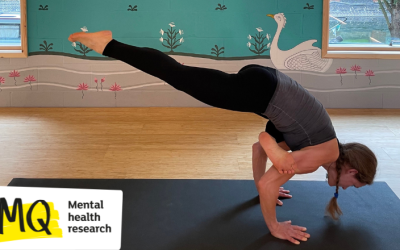Mental health research needs to open up to new ways of working to address inequalities, says report published by Centre for Mental Health
MQ has contributed to a paper published today by the Centre for Mental Health looking at what research can do to tackle mental health inequalities and support a more equitable recovery from the Covid-19 pandemic.
Fit for purpose? Addressing inequities in mental health research exacerbated by Covid-19 was produced on behalf of the Mental Health Research Group, an independent group of leaders in mental health in England.
The report finds that mental health research can do more to tackle deeply entrenched inequalities in the causes of poor mental health. It can help us to find new and better ways to promote good mental health, prevent mental illness and support people living with mental health difficulties. But to do that it needs to be open to new ways of working, different types of evidence, and a more diverse range of people to become involved in research. People experiencing mental ill health especially need more opportunities to lead, deliver and communicate research.
“Challenging inequalities is one of MQ’s key strategic priorities for the next five years” says MQ’s CEO Lea Milligan. “Our research projects are targeting mental illness in young people, the injustice of racial inequalities and it’s impact on mental health and we are continuing to invest in research projects in low and middle income countries around the world. It is vital that research includes diverse voices and opinions. Diverse not just by demographic, but by experience as well.”
The report calls for systemic change in the ways mental health research is planned, funded and delivered in the wake of the Covid-19 pandemic. It calls on all those who carry out, fund or manage research to:
- Ensure wider representation of groups and communities that have been silenced or overlooked: especially racialised communities.
- Invest in widening the range of people and organisations that can get research funding: including community and user-led organisations.
- Ensure resources are targeted towards key areas that will help to build the evidence base for tackling mental health inequalities, including children and young people, prevention, and factors that influence mental health.
- Find ways to bring together and value different types of knowledge in the production of evidence to inform policy and practice.
The report includes examples of work taking place to address mental health inequalities and challenge inequities of power and influence within mental health research.
The Mental Health Research Group was brought together during the Covid-19 pandemic by The Royal Foundation of the Duke and Duchess of Cambridge and supported by The Maudsley Charity.
Centre for Mental Health chief executive Sarah Hughes said: “Mental health research has been under-funded for decades. And even now, with greater awareness and interest, it remains poorly supported. But the research we have is also too narrow, with too few voices getting heard. The result is that policies and services that could make a difference are too easily dismissed for a ‘lack of evidence’. This has to change. We need more mental health research. And we need it to be more diverse, more challenging and more reflective of the people whose lives are being talked about. We want this paper to spur action at every level and create a vibrant, equitable and impactful mental health research economy for the future.”
Mental health research has been under-funded for decades. And even now, with greater awareness and interest, it remains poorly supported.
Neha Shah, City University, said: “Tackling inequities in mental health requires us to acknowledge which aspects of mental health are less well researched, to enable communities, those with lived experience and silenced groups to engage with and be prioritised in research, and to reach out from disciplinary and professional silos to tackle problems collaboratively. This includes but is not limited to people who have been diagnosed with mental illness and used clinical services. In the last year, we have all faced challenges, experienced losses and found ways to be resilient. We must acknowledge the wider environment which can support or threaten our mental health from childhood to old age. We call for funders and developers of today and tomorrow’s research to invest in different ways of working to ensure we address the whole of people’s experience and know how best to support people where and when they need it.”
The MQ Science Summit in May featured a panel discussion on how mental health science could address inequalities. Chaired by Dr Stephani Hatch from Kings college London and Jacqui Dyer the inequalities advisor for NHS England, the panellists discussed a range of subjects from the reform of the Mental health and inequalities act to approaches to social work. You can watch this video below or on our Youtube channel here.



